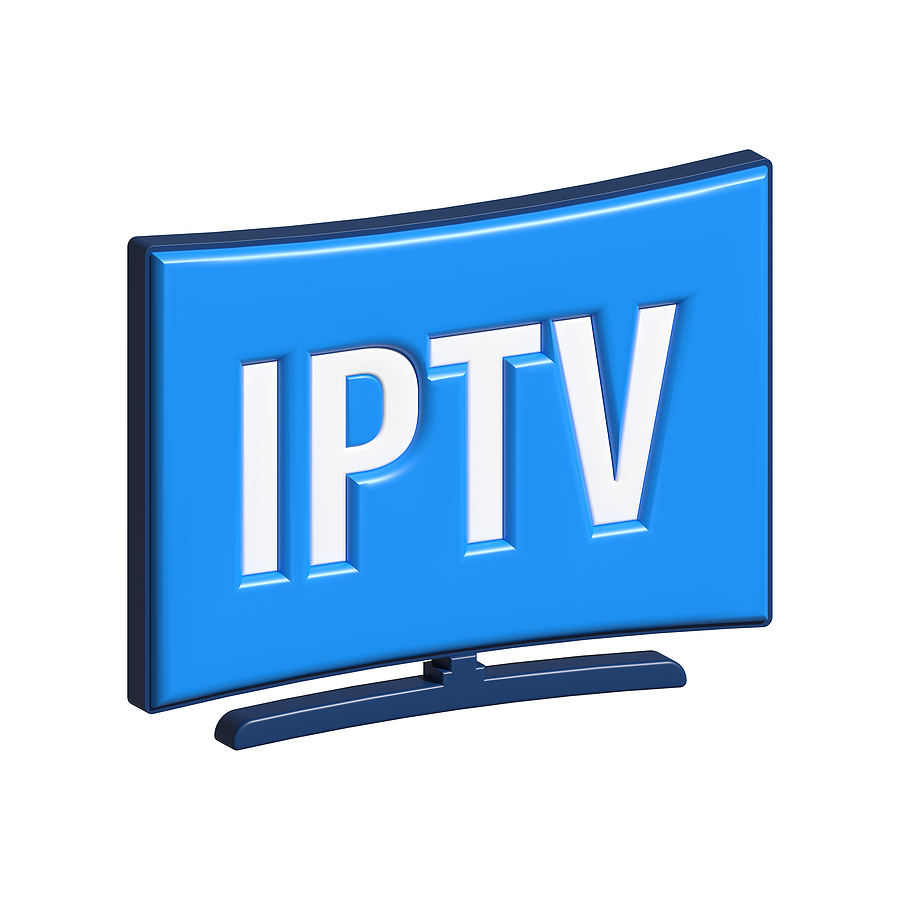Internet Protocol Television (IPTV)—How It Works and Why It’s Critical for Business in 2024
- On May, 01, 2024
- Jackie Nunez
- IPTV

Do you ever feel like you just can’t get away from the television? It’s everywhere—in waiting rooms, lobbies, airports. Screens upon screens playing cable news, or sitcom reruns, or infomercials. It makes sense that we can’t seem to tear ourselves away from the warm glow of the TV screen. After all, humans are visual creatures. We like bright, colorful moving images. And nothing delivers them better or more conveniently than television.
But maintaining all those screens can get complicated, especially for large organizations like hospitals, hotels, and office buildings. Traditionally they’ve had to contract with cable providers and juggle multiple set-top boxes and miles of cable wiring snaking through ceilings and walls. Talk about a headache!
Thankfully, there’s a simpler solution that’s rapidly gaining popularity: IPTV.
What is IPTV?
IPTV, or Internet Protocol Television, delivers television content over Internet Protocol networks instead of through traditional formats like cable or satellite.
More specifically, IPTV involves encoding audio and video signals, transmitting them over an IP network, and decoding them for viewing on a screen. Some key components of IPTV systems include:
- Video on Demand (VOD) – Allows users to request and watch video content whenever they want, like movies or TV shows, instead of on a set schedule.
- Time-Shifted Television – Enables pausing, fast forwarding, rewinding live TV just like a DVR.
- Live Streaming – Broadcasts events like news, sports games, or conferences to subscribers in real time.
So in simple terms, IPTV converts TV signals into data packets and distributes them over wide or local area networks to connected devices like smart TVs, computers, tablets, and phones.
Why Businesses Love IPTV
There are several reasons IPTV appeals to businesses and organizations:
Lower Costs – IPTV leverages existing Internet and network infrastructure, so there’s no need for expensive new cables, satellite dishes, set-top boxes, etc. Video can be transmitted anywhere there’s a network connection.
Scalability – It’s easy to add or reduce the number of IPTV subscriptions as needs change. You can quickly roll it out to new locations without major construction.
Flexibility – Video content can be viewed on any networked device, from TVs to PCs and mobile devices. Content can also be easily customized for each location.
Interactivity – IPTV systems allow all sorts of cool interactive features like channel guides, video on demand catalogs, interactive advertising, etc.
Reliability – IPTV services promise minimal downtime and the ability to control video quality.
For these reasons, IPTV is an ideal solution for any organization that needs to deliver television programming across multiple screens and locations. Hotels, hospitals, corporate offices, college campuses and more are adopting IPTV.
How Businesses Use IPTV
There are endless possibilities when it comes to business uses for IPTV technology:
Digital Signage
Combine an IPTV system with digital signage to deliver targeted messaging and advertising to public screens around your facility. Add real-time information like weather forecasts or emergency notifications. Easily update content anytime.
Employee Training
Record and distribute training videos, company meetings, CEO addresses, etc over your IPTV network. Employees can watch on their own schedule on any device.
Patient Education
Hospitals can provide educational and entertaining programming through patients’ bedside IPTV screens. Patients can also access services like language interpreters as needed.
Hotel Guest Services
Let guests watch TV from their devices and access conveniences like room service menus, travel booking, facility info, and more via IPTV portals.
Retail Marketing
Stores and restaurants can use IPTV to display menus, advertisements, special offers and other promotions. Content can be scheduled and tailored to location.
Sports Viewing
Sports bars and stadiums are realizing game day benefits from IPTV like targeted advertising, instant replay, and custom camera angle viewing for patrons.
The possibilities are truly endless when it comes to creating business value from IPTV systems. The technology is only becoming more widespread as organizations recognize the benefits of lower cost and greater flexibility compared to traditional cable TV services.
IPTV in Action: Case Studies
Here are just a couple real world examples of organizations already taking advantage of IPTV:
Marriott Hotels
The hotel giant implemented IPTV and digital signage in over 300 properties to provide guests with television, video on demand, and hotel information services. The flexible system displays customized content on hotel room and lobby screens. Marriott can easily update programming based on location, date, or time of day.
Bank Audi
This Lebanese bank uses IPTV and digital signage to deliver targeted messaging to customers in branches. Content is centrally managed and tailored to each location. The bank reports higher engagement and satisfaction from customers since implementing IPTV.
The Future of IPTV for Business
It’s clear that IPTV adoption will only accelerate in the coming years as business recognize the tremendous benefits over traditional TV distribution:
- Lower Costs – No expensive new cabling or satellite installation needed
- Flexibility – Deliver content anywhere with a network connection. Compatible with any device.
- Targeting – Provide customized content tailored to each user or location.
- Interactivity – Offer advanced features like video menus, search, e-commerce portals and more.
- Scalability – Quickly add new endpoints without major infrastructure changes. Go from 10 screens to 10,000!
By 2024, its projected that 72% of all Internet traffic will come from IPTV and online video services. The ease and flexibility of IP distribution make it the clear choice versus legacy cable/satellite for any business.



